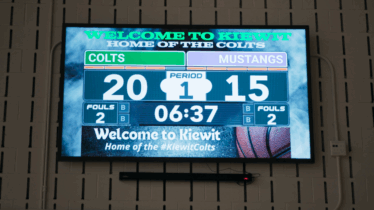Editor’s Note: Learn more from industry experts from Samsung, Google, CatchOn and Grants Office on the latest education technology, data analytics solutions and recent stimulus funding available to support these purchases. Download the full webinar recording.
Over the past year, K-12 districts and charter schools across the country have had to ramp up their digital instruction practice in answer to the coronavirus pandemic. The rapid transition to remote or hybrid instructional practice required tenacity and a dash of ingenuity. The nation’s educators have truly responded to this clarion call with aplomb. Yet, in doing so, questions of digital equity and inclusion have now been brought to the forefront of the nation’s attention.
- How many of our students are without reliable home internet or connectivity?
- How many of our students lack a home computing device on which to complete homework?
- How many of our students do not possess the digital literacy necessary to navigate online learning?
- How many of our educators were prepared to navigate the slew of online learning platforms and resources suddenly thrust upon them?
Survey data shows that nearly 16.9 million school aged children are without high-speed home internet access, and 3.6 million homes lack a computer. Of those experiencing this digital education inequity, students from rural, low-income and/or minority backgrounds have been especially impacted. When the world stopped and everyone was forced into their homes to remain safe from coronavirus, these students were simply not as prepared to maintain continuity of learning as their peers from higher socio-economic or otherwise advantaged backgrounds.
The ideal digital education solution
Home internet access and devices are only half of the equation for supporting digital education, though. Online learning platforms abound, as do specialized digital instruction solutions. On top of unreliable — or even lacking — devices and connectivity, teachers and students have been asked to navigate these new (and often multiple) digital resources with little to no coaching. This results in a lot of noise for students and teachers to filter through, which can add additional burdens during an already stressful time.
Fund your remote learning initiative
Learn how to create, present and secure grants for your remote learning technology needs. Download Now
Fortunately, Samsung, Google and CatchOn have come together to offer educators an easy answer to these challenges, with Samsung providing the devices, Google the OS and CatchOn the management tools. This digital education package is an ideal solution to assist your district as you look to take lessons learned from coronavirus and transition out of remote or hybrid learning back to full in-brick instruction.
How the ESSER Fund supports digital education purchases
In March 2021, Congress passed the American Rescue Plan Act, which provides an additional $122 billion in funding to K-12 public schools via the Elementary and Secondary School Emergency Relief (ESSER) Fund. This funding is already flowing from the U.S. Department of Education to State Education Agencies (SEAs) within each of the 50 states, D.C. and Puerto Rico. In fact, some SEAs have already started to regrant these funds to Local Education Agencies (LEAs) and charter schools with LEA status. This ESSER funding is the third installment of stimulus money and will look similar to the versions of the program from the CARES and CRRSA Acts of 2020, with a few key differences:
- Awardees must reserve at least 20 percent of their allocation to provide evidence-based learning loss interventions and must ensure that these efforts respond to students’ unique academic, social and emotional needs — especially for those at-risk student subgroups who have been disproportionately impacted by the coronavirus.
- In order for receive funds, awardees must develop and make publicly available on their website (no later than 30 days after receipt of funds) a plan for the safe return to in-person instruction. Further, this plan must have been open to public comment and those comments must have been considered in the final development of the final version of reopening plan.
Most importantly, like the versions of ESSER that came before, this ARP-funded ESSER program will still empower districts to fund any remaining much needed technology solutions. The ARP legislative language specifically states as an allowable use, “Purchasing educational technology (including hardware, software, and connectivity) for students who are served by the local educational agency that aids in regular and substantive educational interaction between students and their classroom instructors, including low-income students and children with disabilities, which may include assistive technology or adaptive equipment.”
Whether you’re still in need of devices, connectivity or software solutions to support your digital education initiative, be sure to visit your SEA website today to check for updates on this funding. You won’t want to miss out on your chance to capitalize on this timely funding opportunity!
Engaging with the Samsung Grant Support Program
Finding the best way to align your technology needs with the right grant program can be challenging — even for the most seasoned grant-seeking institution.
If you’d prefer individual coaching on how to integrate mobility into an upcoming grant proposal, reach out to your Samsung representative. They can put you in touch with our team of experienced Grants Development Consultants from Grants Office. This assistance — provided free by Samsung — will guide your agency through the entire grant-seeking process, including a comprehensive inventory of grant opportunities that fit with your project, as well as one-on-one consultation that will help your agency navigate the landscape of technology-friendly public safety grant funding.
Contact your Samsung Representative to get started today. In the meantime, read our free white paper for more advice and resources on how to fund your remote and hybrid education technology initiative.








